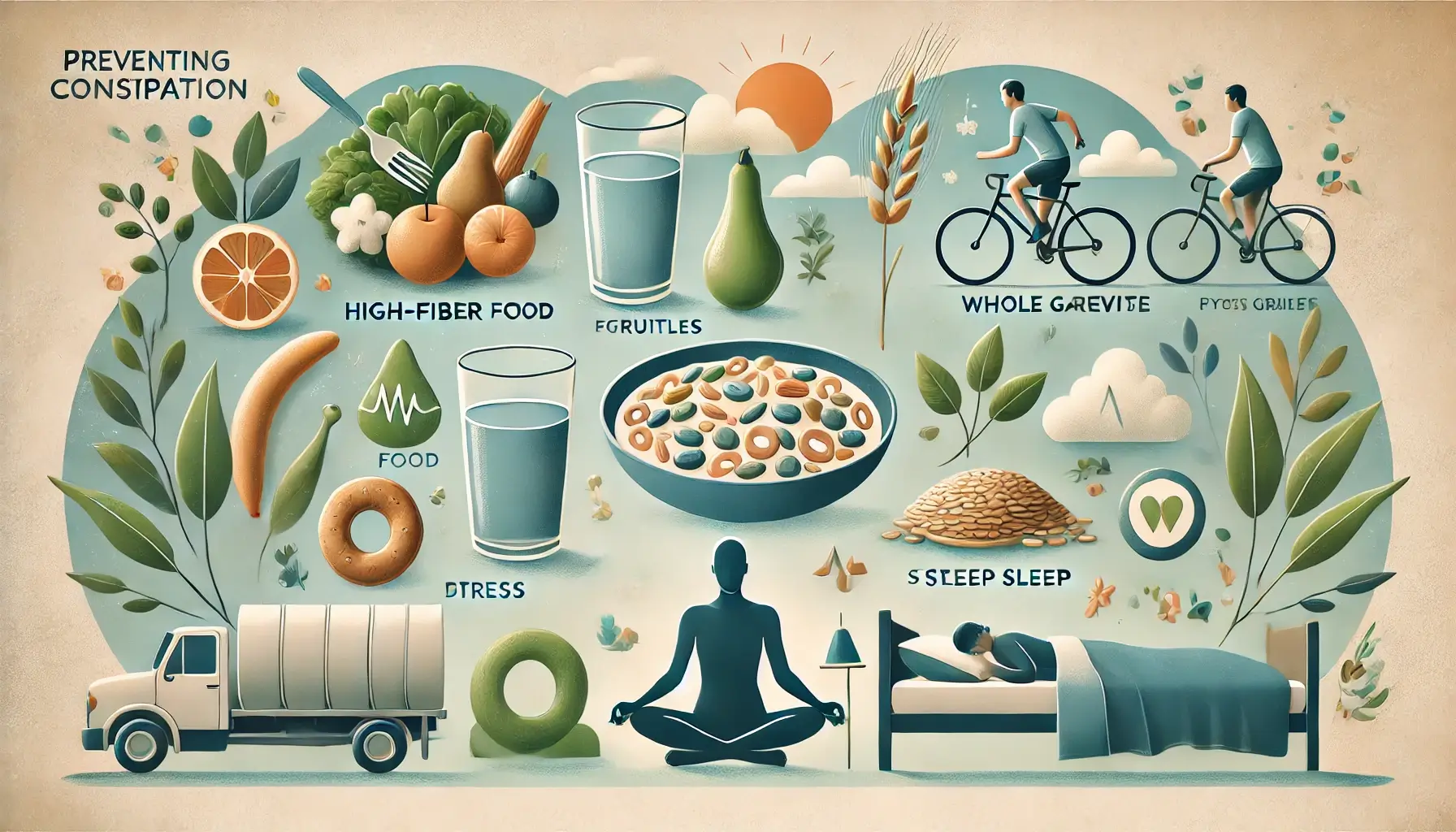Understanding the Impact of Constipation
Constipation is more than just a minor inconvenience—it can have a substantial impact on one’s physical comfort and mental well-being. Defined as infrequent or difficult bowel movements, constipation is a common condition that can affect people of all ages. While occasional episodes may be manageable, chronic constipation complications can lead to complications, such as abdominal pain, hemorrhoids, or even more severe gastrointestinal issues.
Causes and Prevention Overview
The underlying causes of constipation vary, ranging from dietary choices and insufficient physical activity to stress and dehydration. Identifying these triggers and implementing preventive measures can significantly reduce the frequency and severity of constipation. This article offers a science-based exploration of strategies to prevent constipation, focusing on dietary, lifestyle, and supplementary interventions. By adopting these methods, you can enhance your digestive health and overall quality of life.
Evidence-Based Strategies to Prevent Constipation
Dietary Modifications
The Role of Dietary Fiber
Fiber is a cornerstone of digestive health, aiding in stool formation and regular bowel movements. A 2016 review in Alimentary Pharmacology & Therapeutics revealed that individuals who increased their fiber intake experienced fewer constipation symptoms and better quality of life. Foods rich in fiber include fruits, vegetables, whole grains, and legumes. Gradually incorporating these into your diet is crucial to avoid potential bloating or gas.
(Source: Chey et al., 2016)
The Importance of Hydration
Water is essential for softening stool and facilitating intestinal passage. A 2019 study in Nutrients highlighted the importance of maintaining optimal hydration, recommending at least eight glasses of water daily, or more depending on activity levels and climate. Inadequate hydration can worsen constipation by slowing intestinal transit.
(Source: Li et al., 2019)
Impact of Diet Choices
Processed foods and those high in added sugars can disrupt gut microbiota and digestive health. A 2017 study published in Nature demonstrated the adverse effects of high-sugar diets on gut health, linking them to constipation and other digestive issues. Replacing processed snacks with whole, nutrient-rich options is a simple yet effective preventive measure.
(Source: Sonnenburg & Bäckhed, 2017)
Lifestyle Adjustments for Better Digestive Health
Regular Physical Activity
Physical activity is a natural stimulant for bowel movements. A 2018 review in the World Journal of Gastroenterology reported that engaging in at least 30 minutes of moderate-intensity exercise, such as walking or cycling, can improve intestinal motility and reduce constipation risk.
(Source: World Journal of Gastroenterology, 2018)
Bathroom Habits Matter
Ignoring the urge to defecate can result in chronic constipation over time. Establishing a regular routine for bathroom visits, especially after meals, can help train your body for consistent bowel movements.
Managing Stress for Gut Health
Chronic stress is a well-documented contributor to digestive disturbances and constipation. A 2015 study in Gut revealed that high stress levels disrupt gut motility and hormonal balance. Mindfulness practices for stress reduction such as meditation, deep breathing exercises, or yoga can help reduce stress and its impact on the gut.
(Source: Gut Journal, 2015)
The Sleep-Digestion Connection
Sleep deprivation can alter gut hormone regulation and digestion. Aim for 7–8 hours of restful sleep nightly to maintain a healthy digestive rhythm.
Supplementary Solutions
Probiotics
Probiotics can restore balance to the gut microbiome, promoting regular bowel movements. A 2014 meta-analysis in The American Journal of Gastroenterology demonstrated the effectiveness of probiotic strains for constipation. Not all probiotics are equally beneficial, so consulting a healthcare professional is recommended.
(Source: American Journal of Gastroenterology, 2014)
Strengthening Pelvic Floor Muscles
Strengthening the pelvic floor muscles can enhance bowel movement efficiency. These exercises, often guided by a healthcare provider, are especially helpful for individuals with pelvic floor dysfunction contributing to constipation.
Final Thoughts
Constipation is a widespread issue, but it is one that can be effectively prevented through a combination of dietary, lifestyle, and supplementary strategies. Gradual increases in fiber intake, adequate hydration, and regular physical activity are foundational measures for maintaining digestive regularity. Stress management, proper sleep, and natural remedies like probiotics or pelvic floor exercises can further enhance your gut health.
When to Seek Medical Help
For those experiencing persistent constipation with severe symptoms or accompanying symptoms like severe abdominal pain or blood in the stool, medical consultation is vital to rule out more serious conditions. By prioritizing these preventive measures, you can achieve a healthier digestive system and balanced life.
References
Chey, W. D., et al. (2016). Fiber for constipation: Effect on constipation symptoms and quality of life. Alimentary Pharmacology & Therapeutics, 44(11), 1421–1431. Link
Li, Z., et al. (2019). Gut microbiota, fiber intake, and constipation. Nutrients, 11(7), 1709. Link
Sonnenburg, E. L., & Bäckhed, F. (2017). Diet-microbiota interactions as moderators of human metabolism. Nature. Link
Probiotics for Constipation. (2014). The American Journal of Gastroenterology. Link

Dominic E. is a passionate filmmaker navigating the exciting intersection of art and science. By day, he delves into the complexities of the human body as a full-time medical writer, meticulously translating intricate medical concepts into accessible and engaging narratives. By night, he explores the boundless realm of cinematic storytelling, crafting narratives that evoke emotion and challenge perspectives.
Film Student and Full-time Medical Writer for ContentVendor.com




